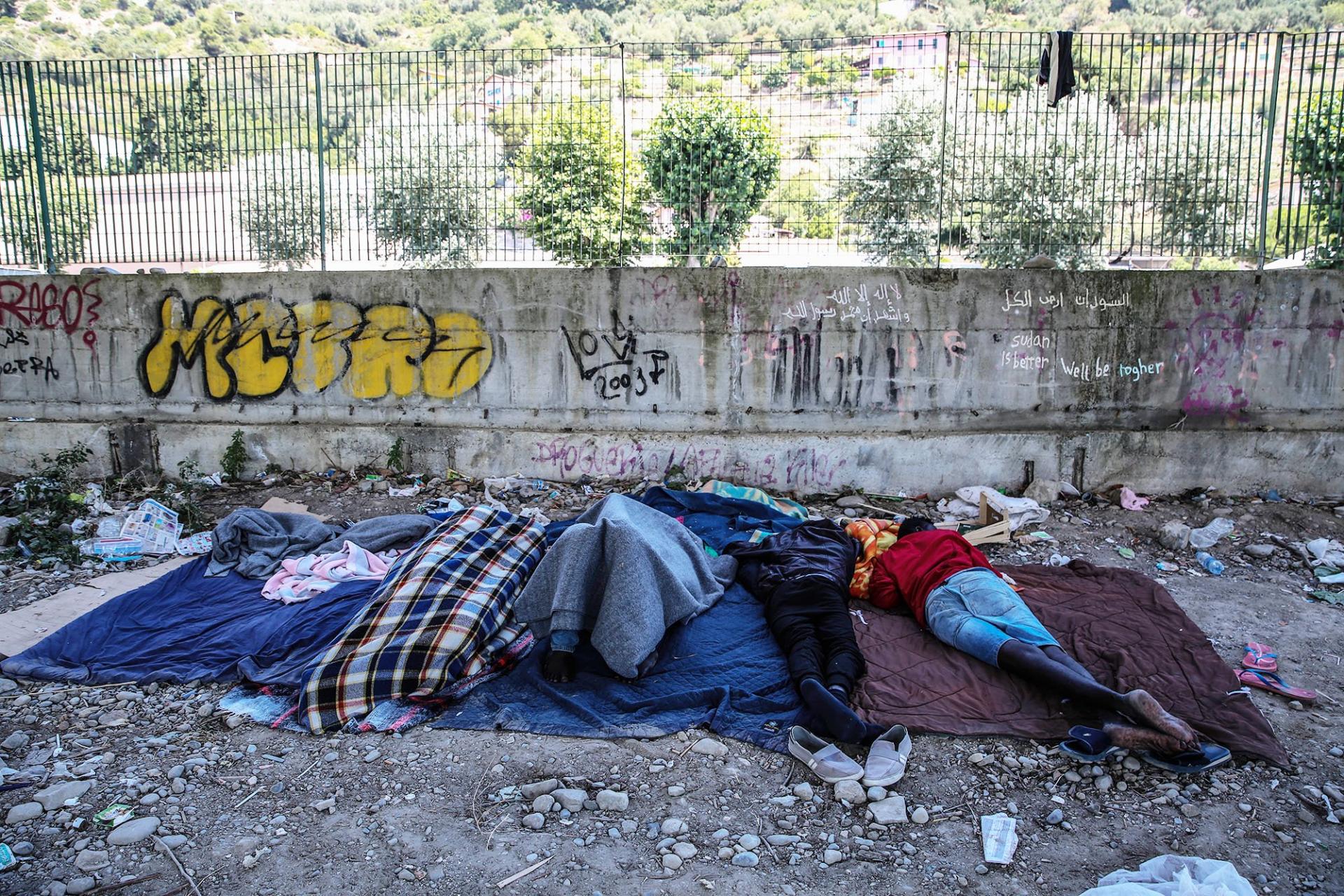Ventimiglia - As a consequence of the ever stricter border policies in place in Europe since the marked sharp increase in migration from 2015, the Italian town of Ventimiglia has turned into the main transit point for migrants arriving in Italy and trying to reach the other EU countries.
Since the end of 2016, Doctors Without Borders (MSF) has started providing maternal care and first mental support to migrants in transit towards France, stuck at the border and with no access to basic care.
With the arrival of the summer season, more and more people have reached the border city, not finding shelter in the existing facilities.
Gebreel has been sleeping rough under a bridge in the northern Italian town of Ventimiglia for a month, desperate yet so far unable to cross the border into France.
Like thousands of others of migrants who risked their lives at sea and are now stuck in Italy, he has all but run out of strength as he struggles to complete the last stretch of his journey.
In 2016, more than 180,000 asylum seekers reached Italy by boat, setting a record. So far this year, 94, 391 people have arrived on the country’s shores, and many of them have already either left the country or have tried to cross the border into France.
Even though Italy has seen record numbers of arrivals for several years now, it is increasingly clear that the country has been left largely alone to cope with the issue and there has been a remarkable lack of solidarity and shared management of migration reception among the other EU Member States.
Whatever the reasons, the result we see is that Italy’s reception system is failing to meet the needs of the most vulnerable migrants, and many feel unwelcome there.
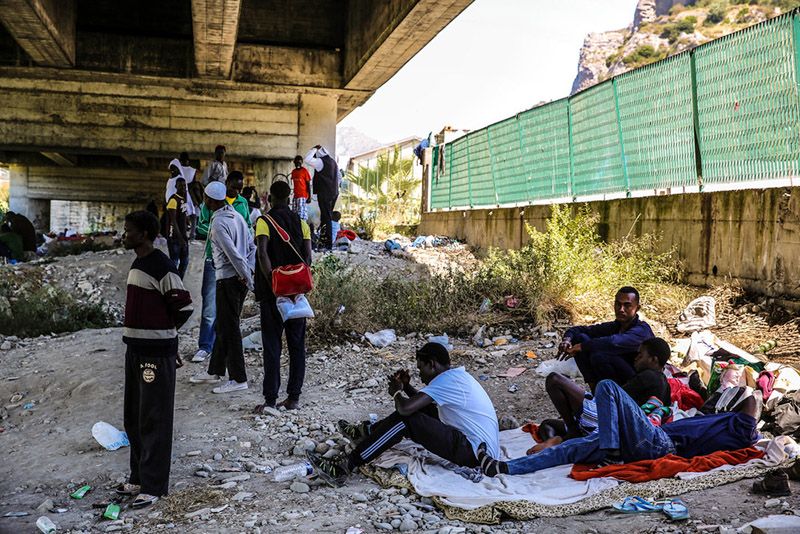
It is also very difficult for migrants, particularly the most vulnerable, to integrate in Italy.
People like Gebreel feel like they have no choice but to keep going until they reach countries like Germany and France, where they believe they have a better chance at a dignified life.
As a consequence of the ever stricter border policies in place in Europe since the marked sharp increase in migration from 2015, the Italian town of Ventimiglia has turned into a main transit point for people trying to continue their journey northwards.
Many migrants, including women, their children and unaccompanied minors, arrive here directly after making a long journey from the shores in southern Italy to the north.
Others come to Ventimiglia after having spent some time in a reception centre waiting to hear back about their asylum claim, or after having received a denial of their asylum demand.
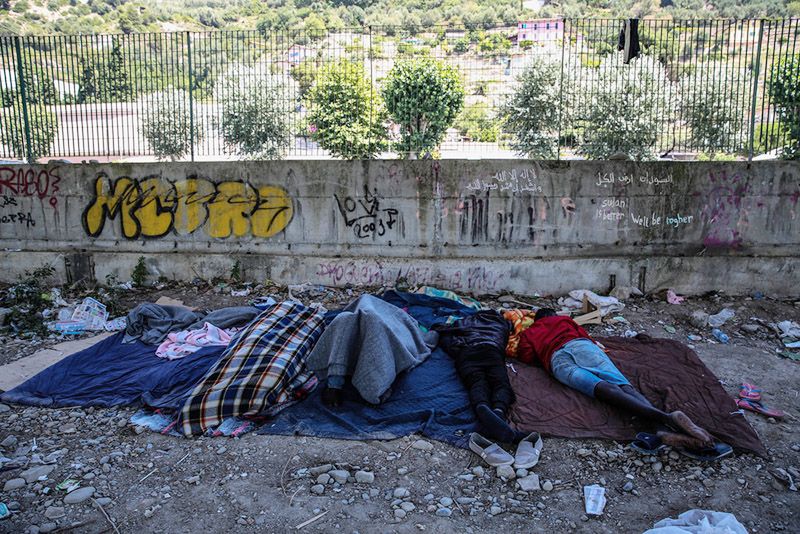
This part of the journey is riddled with difficulty, and many migrants are picked up by police on the French side as they attempt to cross the border.
They are then sent back to Italy, either to reception centres, or moved to police stations. Once they are released, they will often try again to cross into France, again and again until they succeed.
According to migrants’ testimonies, there are two ways into France from Ventimiglia. The stronger ones pay a smuggler to walk along a risky mountain trail, to arrive in the French town of Menton.
Some walk along a highway at night that is so dangerous it has become dubbed the Pass of Death. Most of the migrants must try several times before they succeed, as they are pushed back by French police.
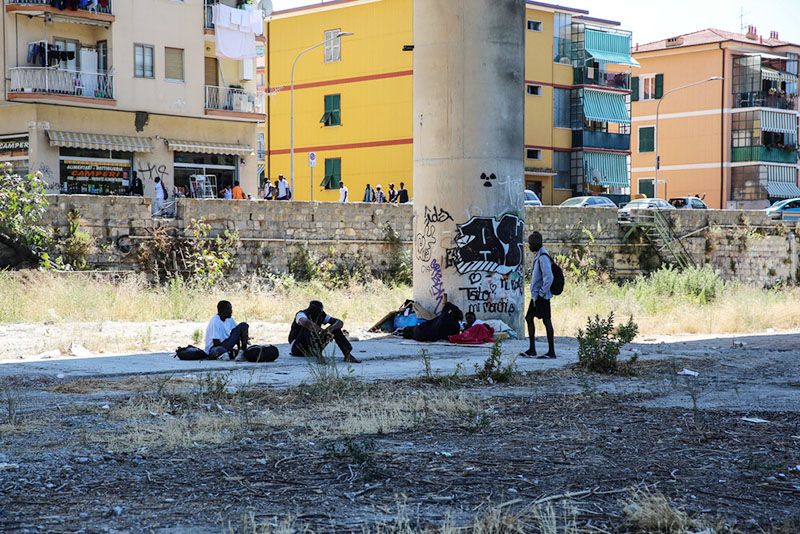
They sleep at the foot of the mountains, on the Italian side, waiting for nightfall before they try again.
In addition, some migrants try by walk to cross the railway tunnel from Ventimiglia to Menton — as dangerous a route as the highway. Since September 2016, 10 people have died in the attempt of reaching France from Ventimiglia.
Others, particularly families, try to make the journey to the French resort town of Nice by train.
But they are often found out and pushed back, forced to try again until they succeed.
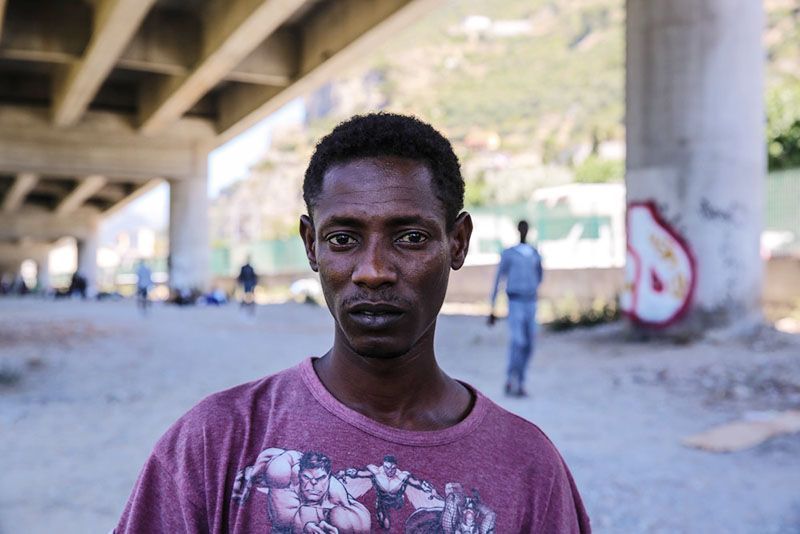
Zakaria, a 23-year
“I tried to cross to France three times through the deadly mountain road but I got caught by the French police,” said Zakaria, a 23-year-old from Sudan who has been sleeping rough under the bridge for a month.
“One of those times they beat me, and another time they sent me all the way back to Taranto in the south of Italy. In Taranto, fingerprinted me, ordering me to pay a fine of 15,000 to 30,000 euros should I get caught again,” he said.
Despite the threat, Zakaria is determined to try again, because he does not feel welcome in Italy. “In Italy, there is no interview to talk about our problems, or about why we left home. They just want us to be fingerprinted by force, but we are human beings.”
Volunteers try to make the lives of migrants in transit a little easier. The San Antonio alle Gianchette Church in Ventimiglia, for instance, is currently hosting and feeding some 100 people — migrant families with children and particularly vulnerable people.
Here, they receive medical treatment thanks to a volunteer doctor, as well as an MSF midwife, psychologist and cultural mediator who visit the church daily.
MSF staff also visit the migrants living under the bridge. Since the beginning of this year, MSF has visited 1,860 patients.
Meanwhile, the Red Cross is currently running a camp just outside Ventimiglia, which last summer hosted up to 600 people.
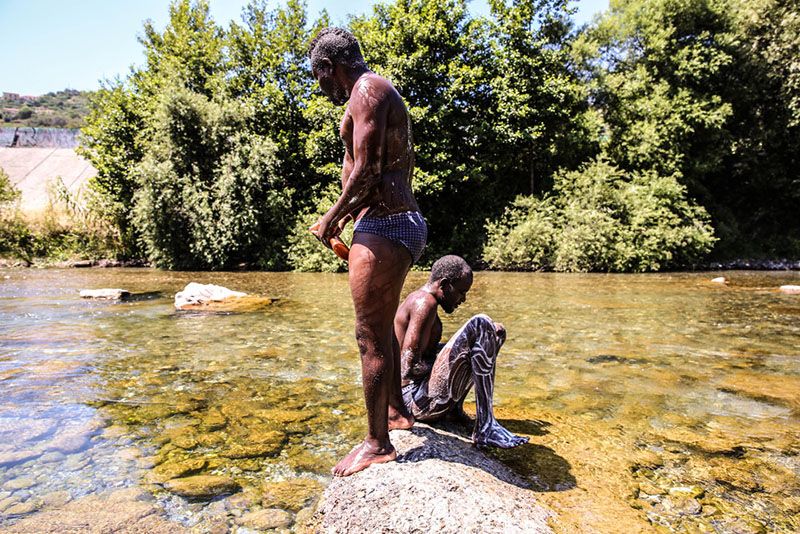
During the last month, around 500 people have slept in the camp, all single men, and from the end of June access has extended also to unaccompanied minors.
However, with the summer season, arrivals have increased, and more and more people have reached Ventimiglia, not finding shelter.
An average of 150 people, with peaks of 300, have slept along the River Roya, in inhumane conditions; there is no running water, no services or latrines or any electricity.
On the French side, civil society activists have built up their local response capacity to assist migrants arriving through the mountains.
But they too have come under pressure for their actions; in 2016, several activists faced prosecution for having hosted or assisted undocumented migrants coming from Italy.
Find more about MSF's work in Italy.
